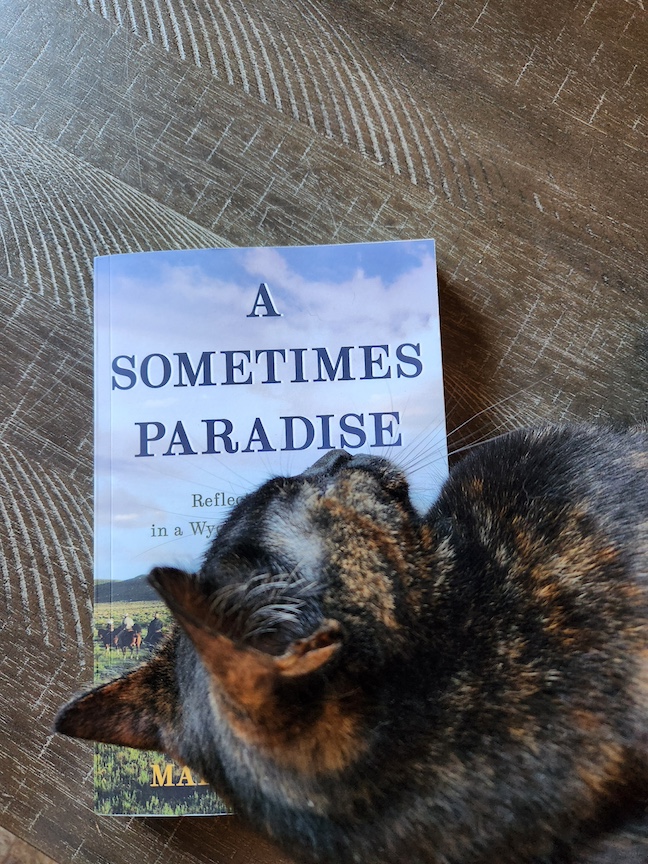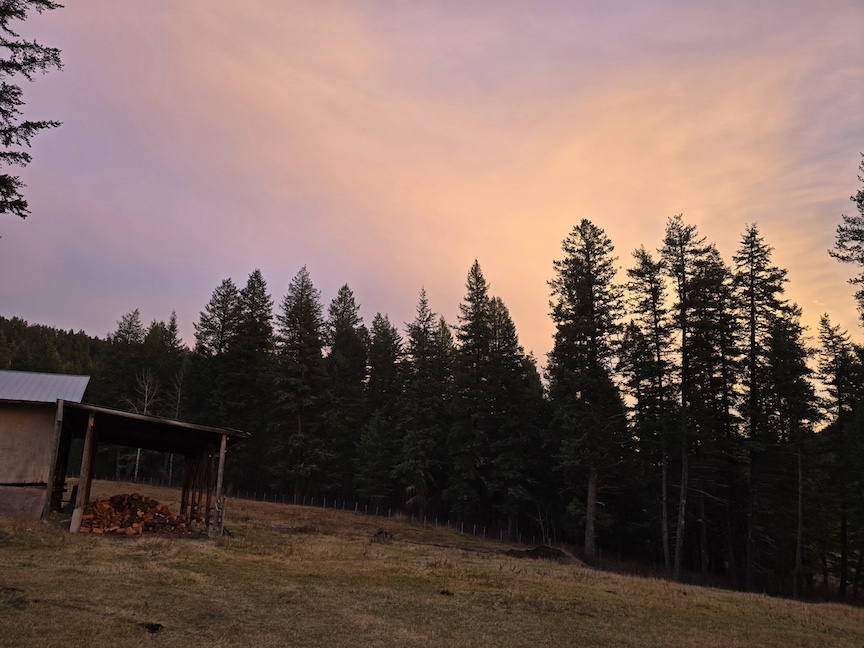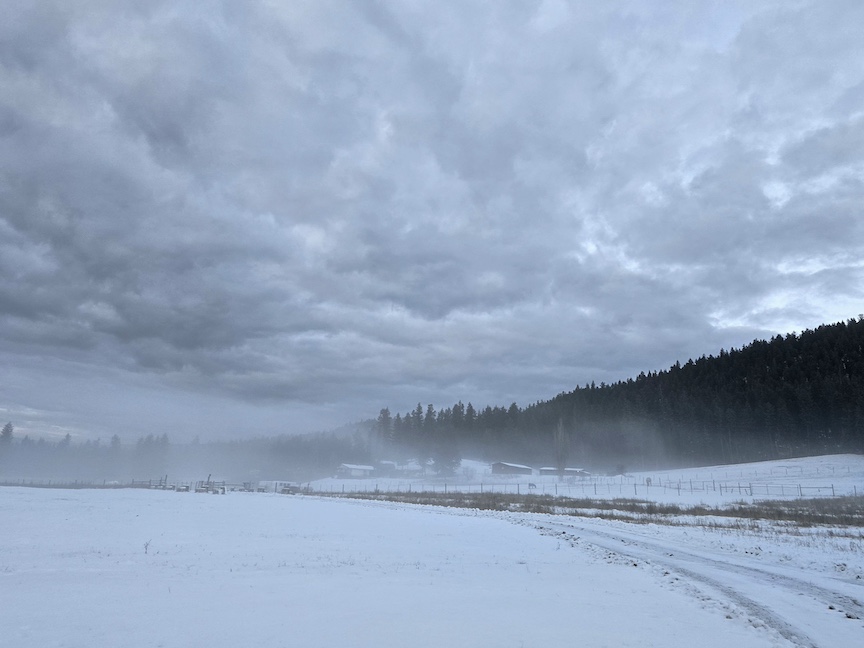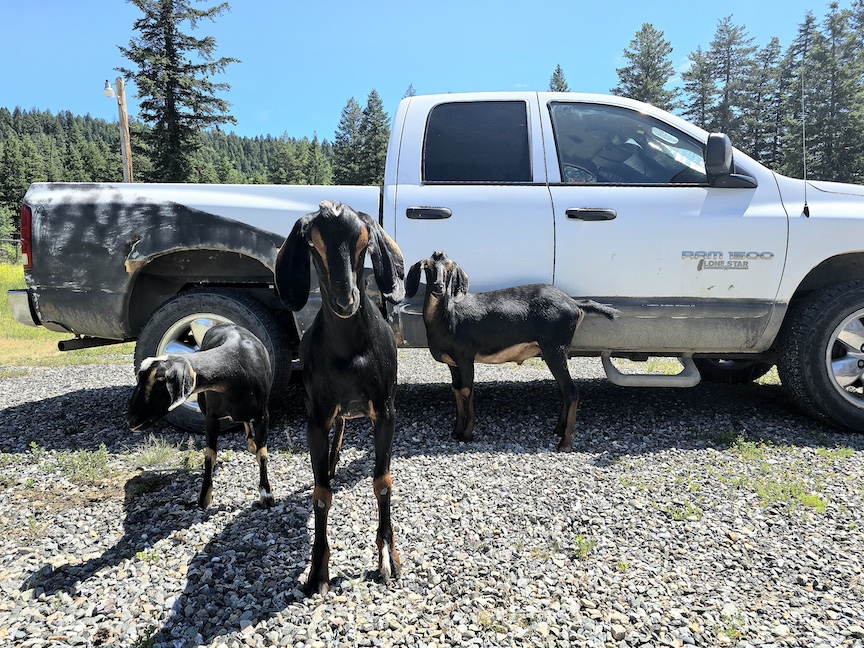Author: Mark E. Miller
Published: 2024
Mood: If everything feels like way too much these days and you want a book that will lead you gently toward appreciating the little things.
Every so often, a book connects with you in a totally unexpected way, and gives you feelings you were not prepared to have. That was my experience with A Sometimes Paradise: Reflections on Life in a Wyoming Ranch Family.
We’ll get to the feelings in a bit.
My active imagination makes me SUPER susceptible to anemoia – the intense nostalgia for a place and time you’ve never been – so this book made me ache to be out exploring the Wyoming countryside on horseback.
If any of the words in the title resonate with you, or you appreciate author Mark E. Miller’s mission to capture a rapidly fading oral history of a region and way of life, this one is definitely worth a read. If you’re the type who’s vehemently against ranching yet somehow found yourself reading this review, you’re probably barking up the wrong snubbing post.

When I started A Sometimes Paradise: Reflections on Life in a Wyoming Ranch Family, I had the sudden realization that I’ve only ever read memoirs of famous people. Musicians, comedians, Old West lawmen and outlaws, other writers… people I already know by reputation. It felt strange to be reading the family history of someone I’d never heard of prior to reading.
Not that Mark E. Miller isn’t a writer – this is his third book, and he previously published a gazillion scientific articles over the last decades as the Wyoming State Archaeologist, as well as shorter creative works. And I assume state archaeologists are celebrities in their own field.
But I digress.
Miller’s storytelling is as easygoing as a horse at a gentle lope, so I quickly forgot that initial twinge of discomfort and breezed through fifty or so pages before I knew it. Each chapter has a theme that reads like a short story, with a beginning that sets the stage, a middle for the action, and a tidy ending that leaves you a little wiser about ranching, animals, or people.
Miller shares priceless lessons gained from his experiences working the family ranch and being on horseback from the time he could walk. He sprinkles in advice from his father and grandfather, so that pretty much anyone is guaranteed to have at least one “aha!” or “woah, I never thought about it like that” moment.
Sometimes it’s tough, like when they lose animals to brutal winters, or young Miller’s dog being put down for killing livestock, or shareholders voting to sell the ranch out from under his father. Other times it brims with the warm sort of humour you might expect around a family dinner table or a campfire in the evening. There are detailed descriptions of how to do everything from shearing sheep to building fences to getting a truck unstuck from a sand dune.
And then there are the descriptions of the scenery. If L’Amour had stayed in one place for his lifetime, this is probably how he’d have written about it. The intimate place names born over generations, only to be lost because they don’t exist on Google Maps. There’s a reverence and respect for everything Miller has seen, and for what he’s trying to preserve in the only way he still can.
![]()
My only real criticism of A Sometimes Paradise is entirely a personal preference: there’s no drama. All of the “adventures, and misadventures, and invaluable lessons” described on the back of the book are family-friendly, even though I bet there were plenty of spicier situations, experiences, and relationships.
But I totally get that that’s not the point of this book, nor its tone, and it wouldn’t have served the purpose. And I genuinely did enjoy being able to relax into its pages and put my trust in Miller’s words. You can tell he’s both an academic AND a great storyteller, the kind of person with whom you’d want to pass hours at a table, just soaking up everything they have to say.
That’s where A Sometimes Paradise got me in the feels, because it reminded me so much of the greatest storyteller I’ve ever known, my late father-in-law. Sure, his stories of ranching and military life had a lot more cussing… and shooting… But the spirit is the same, and it made my heart feel at once sad and full.
I can see why this book earned praise from authors like C.J. Box, W. Michael Gear and Kathleen O’Neal Gear, and David Crow. I would totally read anything else Miller publishes.


